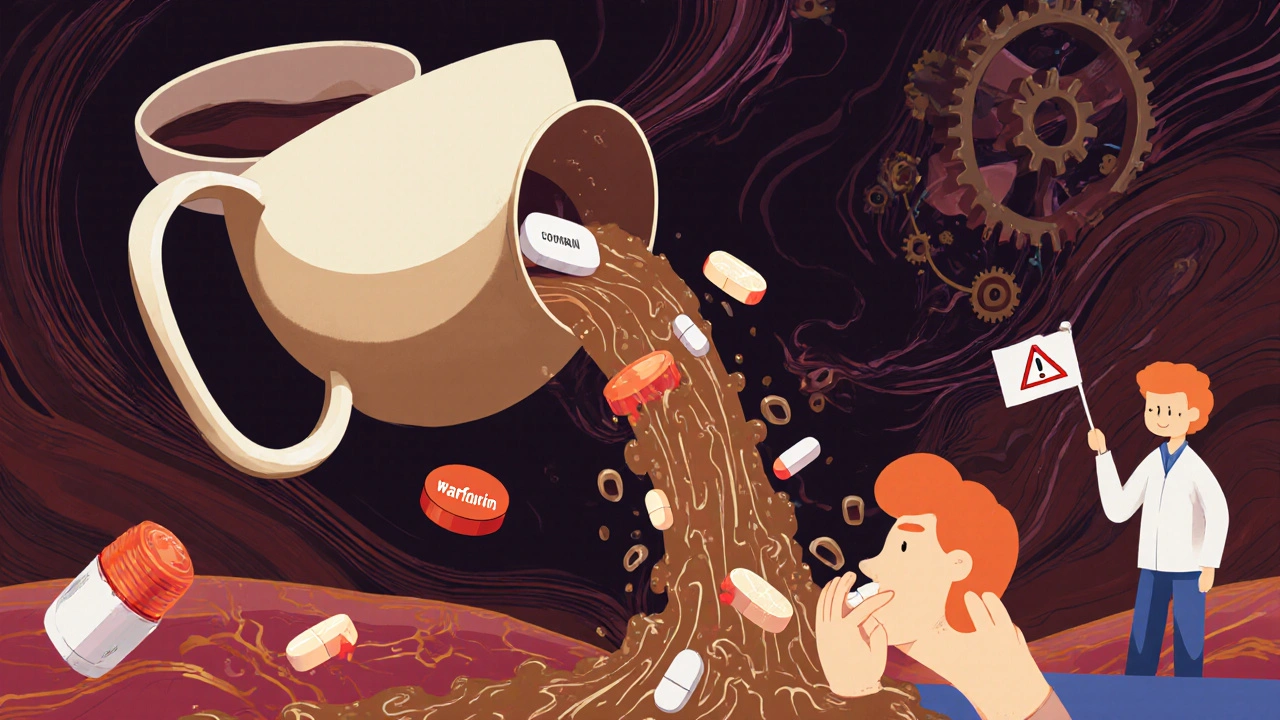Caffeine and Medications: What You Need to Know Before You Drink
When you drink coffee, tea, or an energy drink, you're not just consuming caffeine, a central nervous system stimulant that blocks adenosine receptors to increase alertness. It's also introducing a compound that can interfere with how your body processes medications, chemicals designed to treat or manage health conditions. This isn't theoretical—many common drugs, from antibiotics to antidepressants, react with caffeine in ways that can make them less effective, more toxic, or even life-threatening.
Caffeine doesn't just sit there. It affects your liver's CYP1A2 enzyme, which breaks down over 100 medications. If caffeine slows that enzyme down, drugs like clozapine, an antipsychotic used for treatment-resistant schizophrenia, can build up to dangerous levels. If caffeine speeds things up, your blood pressure pills or antidepressants might not work as long. Even over-the-counter painkillers like acetaminophen can become riskier when mixed with caffeine, especially if you're already taking other meds that stress your liver. And let’s not forget stimulant-based ADHD drugs—adding caffeine to methylphenidate or amphetamines can push your heart rate and blood pressure into unsafe territory.
Some interactions are less obvious. Birth control pills can slow caffeine clearance, meaning one cup might feel like three. Antibiotics like ciprofloxacin can do the same, leaving you jittery for hours longer than normal. On the flip side, smoking or taking certain anticonvulsants can make caffeine disappear from your system too fast, so you end up drinking more just to feel the same effect. People with anxiety, heart conditions, or sleep disorders are especially vulnerable. You might think you're just having a cup of coffee, but your body could be dealing with a hidden cocktail.
What you'll find below isn't a list of warnings—it's a practical collection of real cases and clear explanations. From how caffeine affects your thyroid meds to why mixing it with certain painkillers can trigger headaches instead of relieving them, each post cuts through the noise. You'll learn how to spot the signs of a bad interaction, what questions to ask your pharmacist, and how to adjust your routine without quitting caffeine cold turkey. This isn't about fear. It's about control.
Caffeine and Medication Safety: What You Need to Know About Dangerous Interactions
Caffeine can interfere with medications like warfarin, levothyroxine, and antidepressants, reducing effectiveness or increasing side effects. Learn which drugs are risky, how to avoid dangerous interactions, and what real patients are experiencing.
More
